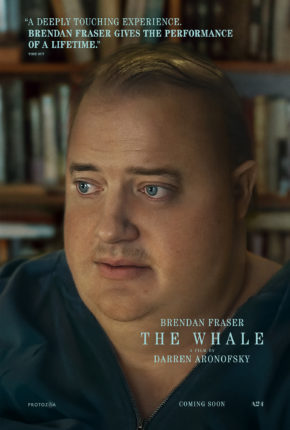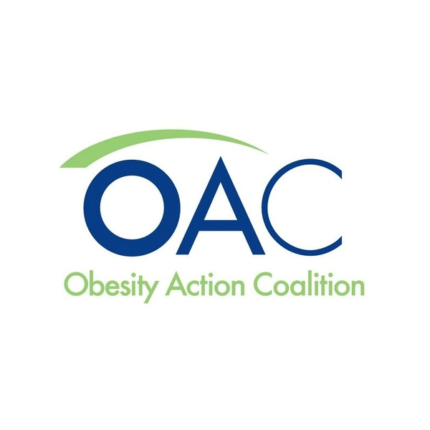
The Obesity Action Coalition (OAC) is honored to have participated in the upcoming film “The Whale.” The production company, A24, approached us with the opportunity to offer the production team and the film’s lead actor, Brendan Fraser, insight into the realities of living with severe obesity.
Please note that this movie may be challenging for many who live with severe obesity or suffer from binge eating disorder to view. Please take this trigger warning seriously.
What motivated our participation?
The reality is there are people in the world with severe obesity. They have lives. They have purpose. They have struggles. They have STORIES. And those stories deserve to be told.
By participating, OAC was able to provide “The Whale” team the opportunity to speak to real people whose lives have been affected by obesity instead of assuming our experiences. Our goal was to make sure the representation of severe obesity was realistic and respectful—not the caricature we so often see in movies or television shows.
How did we participate?
A psychologist specializing in obesity care suggested A24 producers reach out to OAC, and they did. Before the film was shot, a core group of OAC volunteers affected by obesity spoke with Director Darren Aronofsky and lead actor Brendan Fraser about the realities of living with severe obesity. We shared the significant physical, emotional and social impacts of obesity, and we see that insight reflected in many of Charlie’s (Brendan Fraser) movements, actions and emotions throughout the film. We also shared our concerns with the inaccurate and disrespectful ways media usually portrays people of size and the resulting harm to people with obesity.
In addition, OAC has continued to engage with A24, briefing them on weight bias and advising on media around the movie to ensure that all messages, images and language used are respectful and not stigmatizing.
Did we have any input on Brendan Fraser as the lead?
No, Mr. Fraser was already cast as the lead prior to our participation. There is a lack of body size diversity in Hollywood. But casting choices are not just about having representation, they are also about complex and nuanced storytelling. Mr. Fraser has his own experiences with weight bias and stigma, and we found him highly receptive to our feedback. He did a remarkable job of portraying many of the most challenging aspects of living in a large body and of showing several ways people react to being negatively judged for their size.
Did we have any input on the use of prosthetics (fat/empathy suit)?
No, the production team decided to use prosthetics before OAC participated. OAC recognizes such prosthetics can be controversial in our community. Had the prosthetics been used to demean or ridicule people with obesity—like we have seen in so many other instances in film and TV—OAC would not have participated. But the intent of all involved with “The Whale” was to realistically portray one person’s story with obesity, something rarely seen in media. We took part to help make sure that the filmmakers portrayed Charlie in a realistic, multi-dimensional way.
What are our thoughts on the film’s title?
The movie “The Whale” is based on the 2012 Samuel D. Hunter play with the same title. Our immediate reaction to the title was one of concern as it is certainly provocative. “Whale” is often a derogatory term used for people with obesity. However, after reading the play and seeing the movie (trying to avoid any spoilers here), it has a much deeper meaning.
Does “The Whale” accurately portray what it is like to live with obesity?
How individuals experience obesity varies. “The Whale” tells one person’s story, not all of ours who live with obesity. SOME people may have had experiences like Charlie’s or can relate to certain parts of his life. Charlie’s story deserved to be told. All of these stories deserve to be told.
What do we hope viewers take away from the film?
We hope that the film opens the eyes of viewers to what life is like for some people who have severe obesity. We hope the film encourages more people to share their stories. And we hope that future films respectfully portray people with obesity.
Some have criticized the film as “fatphobic.” Do you agree?
Charlie’s story is a realistic one for someone dealing with severe obesity. Some will see Charlie’s feelings of inadequacy, self-deprecating humor, and reclusiveness related to his weight along with other characters’ negative comments about his weight as fatphobic. But these are all undeniably experiences many people with obesity have. That’s why OAC fights so hard to eliminate weight bias and stigma. People of all sizes are worthy of dignity and respect.
The film depicts several binge eating episodes. What do we know about binge eating and Binge Eating Disorder (BED)?
BED is one of the most commonly diagnosed eating disorders, but many more people likely struggle with binge eating behavior. Like all eating disorders, BED is a very serious but treatable condition. Not everyone with obesity or severe obesity has binge eating or BED. Likewise, not everyone with binge eating or BED has obesity. Some of the binge eating episodes in the film are severe and are not reflective of all binge eating episodes. Like any other mental or physical health condition, experiences vary significantly between individuals and even within the same person over time. Some, but by no means all people who struggle with binge eating and/or obesity, will relate to Charlie’s experience. The OAC has a resource HERE for learning more about binge eating and BED.
Final Thoughts:
The OAC was involved in the production of The Whale, as described above. Throughout our involvement, we understood that the movie would inevitably stir controversy and ignite many emotions. We believe that the movie was a step forward in its portrayal of parts of the life of one person living with severe obesity, especially as people with obesity are mostly unrepresented as complex characters with rich histories in films. However, no single film or story could be expected to cover all possibilities or aspects of such a complex issue. We worked behind the scenes to help educate the film’s producers and actors about the disease of obesity, and we now stand ready to continue elevating respectful conversations about weight and fighting weight bias in every form. The complexity of how mental and physical health interact is nuanced, sensitive and deeply personal. We hope that OAC members will continue to share with us their own thoughts, views and experiences, both the positive and the difficult, that are sure to be sparked by this movie’s release.
The Obesity Action Coalition is a national nonprofit organization dedicated to elevating and empowering individuals affected by obesity through education, advocacy and support. We work to raise awareness of and eliminate weight bias and discrimination in healthcare, education, media and the workplace; fight to improve access to science-based treatment and care of obesity for those who choose to seek it; and provide support through education and community events.
Learn More and Get Involved!
- Questions to Consider as You Watch “The Whale” Click Here
- Want science-based information on obesity, care options and more? Check out the OAC Resource Library!
- Want to stay up-to-date on all things OAC? Get connected!
- Want to make the world a kinder, more inclusive place for people with obesity? Support our mission!
